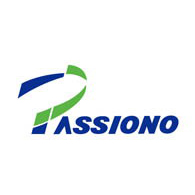
 Ten years of qualification
Ten years of qualification
 Audited Supplier
Audited Supplier
In This Store
Category:Natural Extracts > Plant Extracts
Product Name:Grape Skin Extract 30% Proanthocyanidin; 30% Polyphenols
CAS No.:501-36-0
Standard:USP
Price(USD):0.00
International
Approvals/Standards:ISO Certificate
Company:SHANGHAI PASSIONO INT'L CO., LTD.
Grade: food grade, pharmaceutical grade
Factory Location: Shandong
Main Sales Markets: North America,Central/South America,Western Europe,Australasia,Middle East,Africa
Packaging Information: 25.0kg/drum
Sample Provided: yes
Payment Terms: T/T in advance
Product Description
Molecular formula: C14H12O3
Molecular weight: 228.24
CAS No.: 501-36-0
Melt Point: 253C~257C
Solubility: Poor solubility in water, soluble in aether, chloroform, ethanol, acetic acid and acetone.
Appearance: Fine crystal powder
Color: White
Specific Rotation : -77.5 (c=0.2, EtOH)
Introductin OF resveratrol
Resveratrol (trans-3,5,4'-trihydroxystilbene), belongs to a class of polyphenolic compounds called stilbenes , found largely in the skins of red grapes and root of Polygonum cuspidatum Sieb. et Zucc ( Japanese knotweed), is a component of Ko-jo-kon, an oriental medicine used to treat diseases of the blood vessels, heart and live.. Resveratrol is a fat-soluble compound that occurs in a trans and a cis configuration (see figure 1). Both cis- and trans-resveratrol also occur as glucosides (bound to a glucose molecule). Resveratrol-3-O-beta-glucoside is also called piceid.
| Microbiological Tests | |||||||
| Total Plate Count | <1000cfu/g | CHP2005 | 10cfu/g | ||||
| Yeast & Mold | <100/g | CHP2005 | 5cfu/g | ||||
| E.Coli | Negative/g | CHP2005 | Negative | ||||
| Salmonella | Negative/g | CHP2005 | Negative | ||||
Main Function:
Cardiovascular Effects
Many studies suggest that consuming alcohol (especially red wine) may reduce the incidence of coronary heart disease (CHD). Several studies have demonstrated that resveratrol is an effective antioxidant. It inhibits lipid peroxidation of low-density lipoprotein (LDL), prevents the cytotoxicity of oxidized LDL, and protects cells against lipid peroxidation. It is thought that because it contains highly hydrophilic and lipophilic properties, it can provide more effective protection than other well-known antioxidants, such as vitamins C and E. On the other hand, it is less effective than the antioxidants quercetin and epicatechin found in red wine. Reduced platelet aggregation has also been demonstrated in studies on resveratrol, further contributing to its prevention of atherosclerosis. To date, most of the research on resveratrol's antioxidant and anti-platelet properties has been done in vitro (in an artificial environment using test-tube or tissue-culture preparations). Further studies in animals and humans are necessary to determine whether resveratrol supplementation makes sense.
Cancer-Related Effects
Resveratrol is being studied to see how it affects the initiation, promotion, and progression of cancer. With regard to tumor initiation, it has been shown to act as an antioxidant by inhibiting free radical formation, and as an anti-mutagen in rat models. Resveratrol appears to decrease tumor promotion activity by inhibiting cyclooxygenase-1 (COX-1), an enzyme that converts arachidonic acid to pro-inflammatory substances that stimulate tumor-cell growth . Studies related to progression have found that resveratrol induced human promyelocytic leukemia cell differentiation and inhibited ribonucleotide reductase, an enzyme needed for DNA synthesis in proliferating cells . One appealing characteristic of resveratrol's anti-cancer potential is its minimal toxicity to blood-forming cells . More studies using both cellular and animal models are needed before any such data would be applicable to human use.
Application:
1) Grape seed extract is used for conditions related to the heart and blood vessels, such as atherosclerosis (hardening of the arteries), high blood pressure, high cholesterol, and poor circulation.
2) Other reasons for the use of grape seed extract include complications related to diabetes, such as nerve and eye damage; vision problems, such as macular degeneration (which can cause blindness); and swelling after an injury or surgery.
3) Grape seed extract is also used for cancer prevention and wound healing. Side Effects and Cautions:Grape seed extract is generally well tolerated when taken by mouth.It has been used safely for up to 8 weeks in clinical trials.
4) Side effects that have been reported most often include headache; a dry, itchy scalp; dizziness; and nausea.
5) The interactions between grape seed extract and medicines or other supplements. have not been carefully studied.
6) Tell your health care providers about any complementary and alternative practices you use. Give them a full picture of what you do to manage your health. This will help ensure coordinated and safe care.
Usage:
1. Reduce the inidence of coronary heart disease (CHD);
2. It is effective antioxidant;
3. Inhibits lipid peroxidation of low-density lipoprotein(LDL), prevents the cytotoxicity of oxidized LDL,and protects cells lipid peroxidation;
4. Provide vitamins C and E;
5. Reduced platelet aggregation;
6. Prevention of atherosclerosis;
7. Cancer-related effects;
8. Inhibition of vascular smooth muscle cell proliferation and so on.

Contact Us
Tel: (+86) 400 610 1188
WhatsApp/Telegram/Wechat: +86 13621645194
+86 15021993094
Follow Us:




 Pharma Sources Insight July 2025
Pharma Sources Insight July 2025


